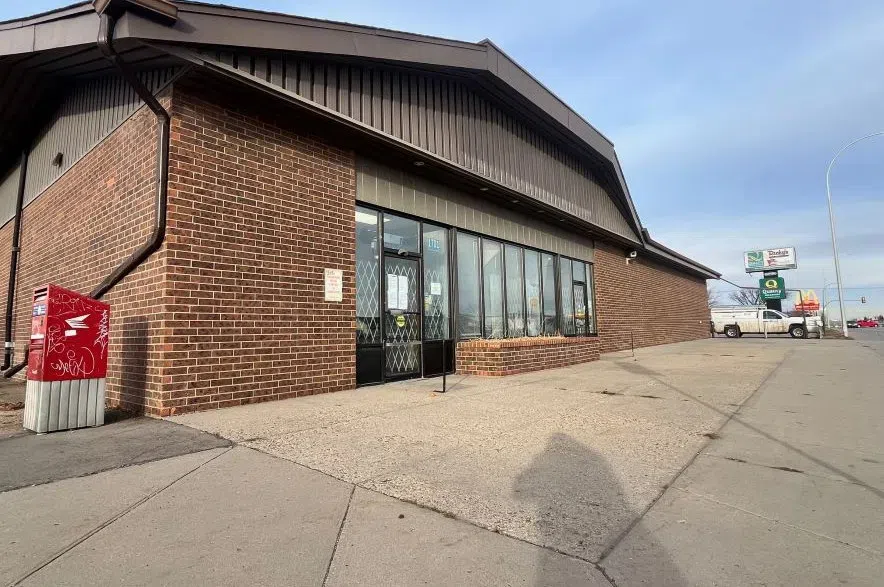Two 15-bed Complex needs shelters — one in Regina, and one in Saskatoon — are expected to begin accepting their first patients in just days.
That’s according to Tim McLeod, the province’s Mental Health and Addictions Minster.
“We’ll be accepting our first patients in just the days ahead. We’re likely going to do a staggered approach, with the Saskatoon and Regina facilities to ensure a smooth transition as we add these facilities into the existing system,” he said on Friday.
Regina’s facility is expected to open its doors sometime this week, while Saskatoon’s could open next week.
It’s been nearly 10 months since the provincial government first announced just over $40 million for a homelessness plan, which included funding for two, 15-bed complex needs facilities, and two, 30-bed permanent emergency shelter spaces in each of the two cities.
McLeod said the complex need centres will be medically supervised, and run by Edgewood Health Network Canada.
They’ll include licensed practical nurses, registered nurses, clinical counsellors, security personnel, and support staff 24/7.
McLeod said the complex needs shelters will only serve people detained under the Summary Offences Procedures Act (SOPA).
“Given the nature and the complexity of some of the addictions that people are battling with, and the toxicity of the drugs in the community, we’ve recognized that some of those individuals when they pose a risk to themselves or others, require medical supervision,” he said.
There has been some opposition to the location of the complex needs centre in Saskatoon, in a former government liquor store, along the 1700 Block of Idylwyld Drive North, with some local business owners and staff expressing their concerns and frustrations to city councillors late last fall.
City council voted 10 to one to allow for a development permit to be issued for the shelter. However, a motion brought forward by Coun. Darren Hill requested the provincial ministry in charge of the shelter report to the city about its operations at the six and 12-month marks after it opens passed unanimously, though the province is under no obligation to provide those reports.
“I had a meeting about two months ago with the ministry as well as the operational service provider and have been provided some comfort in knowing that the impact of that facility in the neighbourhood should be close to zero,” he said.
But Hill also said the province suggested there might be an open house before the facility opened its doors, so that residents and business owners could tour the building to help them understand what would be going on there, and communication material sent out as well to people, to let them know who they could contact in the event any issues arose.
“The open house I haven’t received any information about that, and I haven’t received the communication material either, so I’m thinking those got lost in the (by the) wayside,” he said.
Speaking with those in the area, he didn’t believe many would be surprised about the opening – because it’s been in the works for a long time – and because they’d learned of the secure entry and discharge plans with Saskatoon Police.
“I just wish they would have had the open house that they had indicated to me they were going to have,” he added.
When asked whether those businesses near either shelter in Regina or Saskatoon had been told about the impending openings, McLeod couldn’t say.
“The conversations with stakeholders have been ongoing with all of our stakeholders, not the least of which of course are the municipal councils in Saskatoon and Regina,” he said.
When asked about whether local residents and/or business owners have been notified of the opening of the shelters, both the City of Regina and the City of Saskatoon said the buildings were provincial health facilities, any inquiries should go to the ministries in charge.
McLeod instead said he believed it was important for people to know that they are facilities won’t be able to “come and go freely.”
“Each facility… will have their own executive director. And those executive directors will have ongoing responsibilities to not just maintain the building and the operations, but also to maintain positive relationships with surrounding businesses and community partners,” he added.
He said people who are taken to, and stay at the complex needs shelter will not be “released out the front doors.”
“They would be returned back into police custody, and the police will be releasing them at an appropriate community partner,” said McLeod.
“There will be a discharge plan…they will not just be lingering about the premises or walking in and out of the front doors.”
Those taken to the facility will be held for up to 24 hours, or until they no longer present a risk to themselves or others.
For those treated at the facility who choose to further detox or undergo additional addiction treatment, McLeod assured there would be a place for them to do so.
“We’ve already introduced more than 200 of the 500 new spaces,” he said.
Those living or working near the new complex need shelters in both cities shouldn’t expect much disruption, according to McLeod.
“There may be a slight increase in the appearance in police vehicles as they drop individuals off, but I wouldn’t anticipate seeing…any different environment around the buildings, because people are not lingering – they’re not coming and going,” he explained.
No firm dates for the openings have been announced yet.











